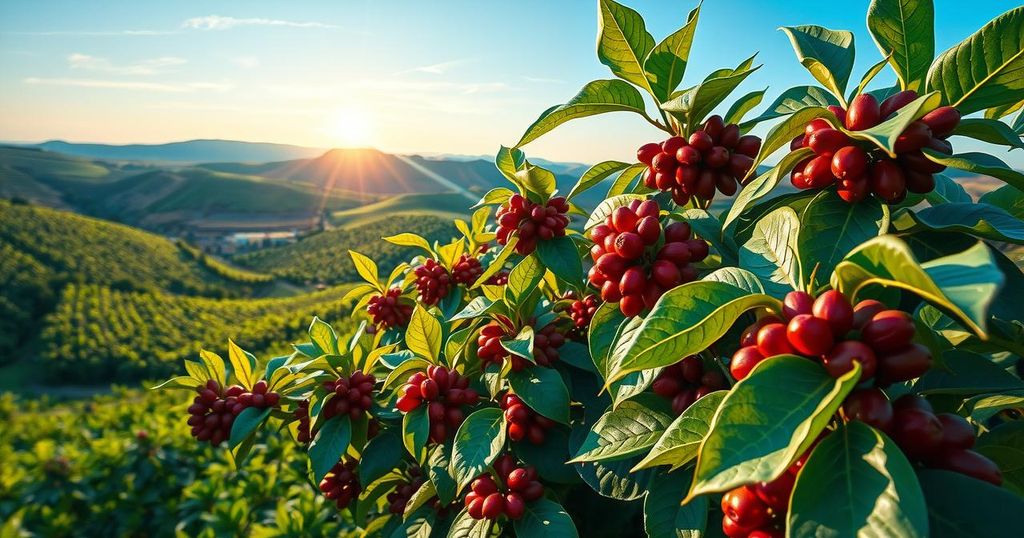Brazilian Coffee Prices Rise Amid Crop Concerns and Strong Real
May arabica and robusta coffee prices are rising due to dry conditions in Brazil and a strong Brazilian real. Projections for global coffee production indicate an increase, yet forecasts suggest declining stocks and production concerns in Brazil, particularly attributed to drought. By 2025/26, significant deficits in coffee production are expected.
May arabica coffee prices have increased by 0.76%, rising by 2.90 points, while May ICE robusta coffee has seen a 0.35% gain, rising by 19 points. This uptick in coffee prices is largely attributed to adverse dry weather conditions in Brazil and the strengthening of the Brazilian real. Specific reports from Somar Meteorologia indicated that Minas Gerais, Brazil’s primary arabica coffee cultivation region, recorded 30.8 mm of rainfall, which is only 71% of the average expected rainfall for that period.
The Brazilian real’s stability contributed to projected growth in global coffee production for the 2024/25 year, anticipated to rise by 4.0% year-over-year to 174.855 million bags. The production of arabica coffee is expected to reach 97.845 million bags, an increase of 1.5%, and robusta production is predicted to grow by 7.5% to 77.01 million bags. However, the USDA’s Foreign Agricultural Service (FAS) forecasts a decline in ending stocks for 2024/25, predicting a drop of 6.6% to 20.867 million bags, marking a 25-year low.
Moreover, on November 22, the USDA’s FAS lowered its estimate for Brazil’s coffee production in 2024/25 to 66.4 million metric tons (MMT), down from a previous estimate of 69.9 MMT. Additionally, the USDA suggests Brazil’s coffee inventories will dwindle to 1.2 million bags by the end of the 2024/25 season, reflecting a decrease of 26% year-over-year.
Volcafe reported on December 17 that its estimate for 2025/26 Brazil arabica coffee production has been revised down to 34.4 million bags, approximately 11 million bags less than earlier projections due to prolonged drought conditions. This organization anticipates a global arabica coffee deficit of 8.5 million bags in 2025/26, which is wider than the 2024/25 deficit of 5.5 million bags and marks the fifth consecutive year of shortages in coffee production.
In summary, Brazil’s coffee market faces challenges from dry weather and fluctuating production estimates. Despite an anticipated increase in global coffee production in the coming years, forecasts indicate a reduction in Brazil’s coffee output and inventory levels, leading to potential shortages. The strength of the Brazilian real further complicates these projections, influencing price trends within the coffee market.
Original Source: www.tradingview.com




Post Comment